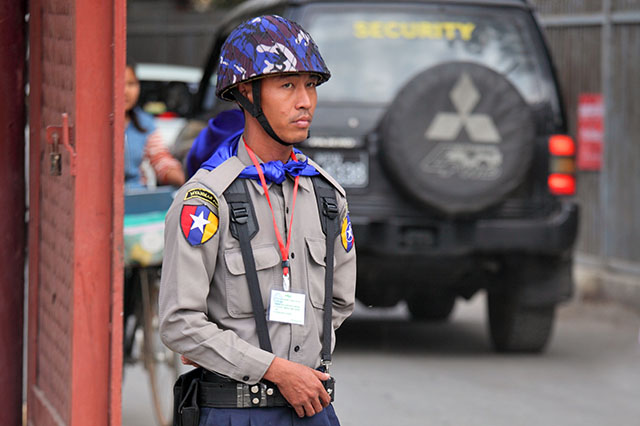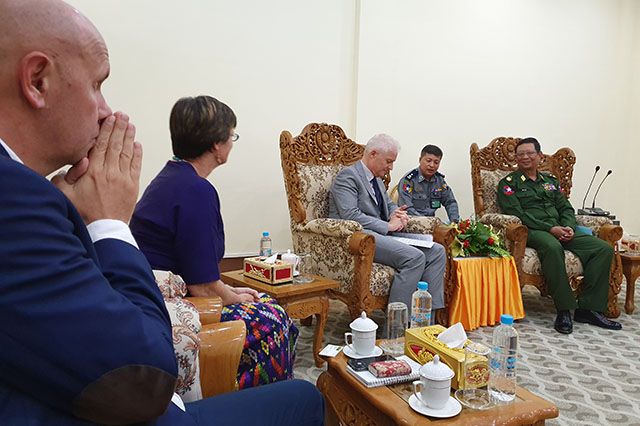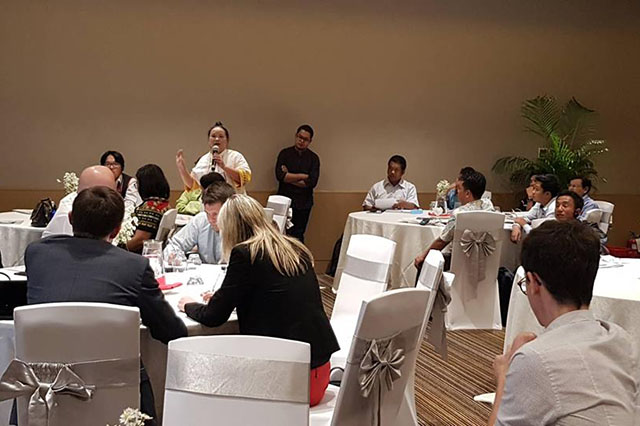Discussion of the Voluntary Principles on Security and Human Rights

On 28 February, MCRB and Peace Nexus co-hosted a discussion with around twenty participants from companies, Embassies, international agencies, the Myanmar Human Rights Commission and NGOs on the potential for establishing an In-country Pilot Implementation Group for the Voluntary Principles initiative (VPs or VPSHR) and its potential agenda and participation.
In 2016, Myanmar was identified by the VPSHR as one of three potential pilot group countries. The discussion wrapped up ten days of stakeholder consultation as part of a scoping study by consultant David Nyheim.
The Voluntary Principles on Security and Human Rights are a multi-stakeholder global initiative established in 2000 designed to guide companies in maintaining the safety and security of their operations within an operational framework that encourages respect for human rights. The VPs brings together companies, NGOs, and governments. The initiative seeks to minimise and address the risk of human rights abuses in communities adjacent to extraction sites that are associated with public and private security provision. The VPSHR includes Implementation Guidance Tools that are aimed at assisting companies, their employees, and contractors to apply the Principles. Several companies with a Myanmar presence or interest are VPs members, including TOTAL, Shell, Chevron, Woodside, PanAust and Freeport.
While the VPSHR is designed specifically for extractive industries, it is of wider application. The Principles have been incorporated by the World Bank’s International Finance Corporation (IFC) into a Good Practice Handbook on Use if Security Forces: Assessing and Managing Risks and Impacts (published February 2017) which supports the implementation of their Performance Standard 4, which relates to Community Health, Safety and Security for private sector investments.
MCRB’s September 2014 Sector-Wide Impact Assessment on Oil and Gas noted that there were some good practice examples by companies using the VPs in Myanmar as a basis for management, training material, procedures and assessment of private sector security providers, and engagement with the authorities on security issues. The Oil and Gas SWIA, and the forthcoming Mining SWIA (launching 8 March) both recommend using the VPs as the basis for security management plans as part of wider environmental and social management systems (ESMS) and in the EIA process, and that government should include them in permits and Production Sharing Contracts.
Read also
- Members of the Myanmar VPSHR Steering Committee meet the Deputy Home Minister
- VPSHR Workshop Hears From Civil Society About Mining Grievances That Can Provoke Company-Community Conflict
- Awareness-Raising Workshops Held in Yangon and Naypyidaw on the Voluntary Principles on Security and Human Rights (VPSHR)
- Steering Committee for the Voluntary Principles on Security and Human Rights Myanmar In-Country Working Group meets for the first time
 English
English မြန်မာ
မြန်မာ မြန်မာ (unicode)
မြန်မာ (unicode)










